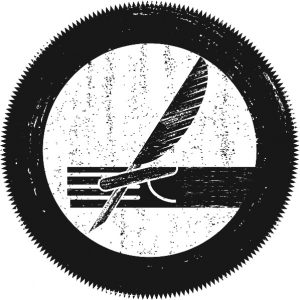Talking about your just-conceived artistic idea is exciting. You can envision the many places this project can take you. Maybe it’s a book, an album, a theatre show, an exhibit. But after the initial excitement you wonder: How will you fund it?
Right. Money. The all-important protein to power your idea from mere words into a tangible creation. How can you focus on your art while trying to whip up cash to make it happen? It’s a cruel catch-22. This is where grants come in. In Canada, we are fortunate enough to have a decent selection of granting bodies and foundations available for artists seeking to fund their projects. Finding money isn’t easy for everyone, though, as many artists don’t have that Spidey sense to pinpoint the right grant for the right idea.
For the uninitiated, we spoke with granters and experienced grant-getters about the glories of grant-finding, the mounds of paperwork attached and how to find (and more importantly procure) the grant to fit each project.
Step One: Search for Grants
It can be daunting to begin the grant-searching process when you don’t have your own artistic project fully laid out like a blueprint. So first you need to…
Write a Project Description: Before you begin researching funding opportunities, write down exactly how your project will manifest itself, with or without money. Let the thoughts flow on paper, then edit your vision into a concise statement
you’ll be able to use in applications. This practice lets you shape the idea into something concrete with a structure you can easily articulate on paper.
Do Your Research: Once you’re finished defining your project, start to research. This will take time — and don’t give yourself any quick outs by just Googling, say, “visual arts grants,” and calling it a day. Lesa Francis, a professional grant writer in Ontario, suggests visiting government sites directly, such as the Canada Council of the Arts (CCA). “Some stuff you won’t find in the first page of Google search results,” she says. She also thinks artists should build relationships with funders, even if that means cold-calling a granting body to talk about what programs are available. Getting to know funders will also let you ask, “So I have this project, and maybe this isn’t a fit for you, but do you know where else I can go?”
Your province may also offer grants through government bodies, so make sure you take a thorough tour of their website and note the key deadlines and eligibility requirements. It never hurts to look at who has previously received these
grants (most sites display this information) and contact recipients to learn more about what else is available beyond the government. Universities offer grants to some of their staff or partner groups. Maybe there’s an outlet like the Inuit Art Foundation that helps fund artists, for example. These groups might not be broadcasting their deadlines online all the time, so it takes some digging and chatting with those in the know in order to find the right grants for your project.
Stay Up-To-Date on Grant-Related Press Releases: New grants are launched almost annually. Did you know the Ontario Arts Council just introduced a $7,500 award for crafts artists to establish or expand their studio? Jason Eaglespeaker, a graphic novelist and comics writer, says hungry artists should look at where they live and figure out what’s available in the non-government grant sector. His hometown of Calgary offers funding through Calgary Arts Development, Calgary 2012 and the Banff Centre residencies among other places.
Give Yourself Time: Preparing a well-written grant takes time, notes Chris Mondor, information officer at the Canada Council of the Arts. Look ahead six months to a year of the grant deadline, and take into account any tweaks to the grant eligibility and requirements, since some grants may be undergoing revisions, he adds.
Step Two: Articulating Your Vision 
So you found out your project is eligible for a grant. Time to get writing and compiling information…
Think About Your Project Some More: “Writing a grant application is a time for reflection for the artist,” says Mondor, noting this kind of thoughtfulness can’t be rushed. Jurors in grant programs — artists chosen to assess your grant — can tell if you’ve rushed the writing process, he says. The grant-writing process is similar to writing university essays — if you leave it to an all-nighter the day before the deadline, your grade will reflect your sloppiness.
Some artists revel in the time spent writing thorough grant applications. “It’s a good time to think about what I’m doing and how I’m communicating that idea to other people,” says Darren O’Donnell, founder of theatre company Mammalian Diving Reflex. His Toronto-based theatre group receives around $60,000 a year in grants, accounting for 17 percent of its budget.
“Ideas seem to get better when I’m forced to articulate them,” he says.
Aim For Brevity and Clarity: The CCA receives around 24,000 grant applications annually. How will yours stick out from the pack? Being convincing and concise is one way to make sure jurors recognize you as a professional artist who
took time to lay out an artistic vision that funders can’t refuse.
“There is a skill in being concise and succinct,” says Francis, who advises artists to highlight the main points of their project without overwhelming the grant with too many details. Remember to take a moment to step back and ask yourself: “Does this make sense?”
Take out the jargon, suggests Mike Kennard, one half of clown theatre company Mump & Smoot. With a 95 percent grant success rate, Kennard says he’s always worked hard to keep fanciful language and verbose ten-dollar words out of grant applications. “Keep it simple. Less is more,” he says. “Don’t get too philosophical.”
 Step Three: Completing The Grant
Step Three: Completing The Grant
Since the jury is made up of your peers in your given field, it can be easy to assume those jurors know your work already. That’s a dangerous move, notes CCA’s Mondor. The jurors could be unfamiliar with your projects, so treat the grant-writing process as an introduction to what you do, almost like show and tell.
Find Funding and Supportive Help Other Than Grants: “Look at government funding as a backup plan, not a first plan,” Francis says. If there’s a section inquiring about any partners you enlisted in helping complete the project, don’t leave it blank. Make sure you have done everything in your power to work with other arts groups and artists to help fund your idea,
says Francis. “Arts councils like to know there might be other people giving you money, helping you out,” she says. Those who usually get funding are not always artists who say they need it the most, she adds. Desperation can be a turn-off for jurors.
Write a Realistic (-looking) Budget: Then there’s the scary budget. Artists hate math, right? But the budget shouldn’t be as stressful as artists fear. Don’t inflate a budget so much that it seems unreasonable. Jurors, who have often applied for grants too, can tell if you’ve done your homework to research; for example, prices for mastering albums or renting out theatre space in downtown Vancouver. Common advice from grant officers is to be conservative on your budget and ensure the figures make sense.
Pull Together Your Support Material: Support material is often required for many grants, whether literary, theatrical, visual or musical. Always include your best work; jurors see hundreds of grants every day and your support material needs to wow them out of their mid- afternoon lull. It might take some time to get the best portfolio compiled for the grant, but your fellow artists on the jury will recognize the extra effort.
Once Again, Enlist More Support: Letters of reference from masters in your field will always be helpful. Reach out to mentors, teachers and well-known artists and ask them politely for a reference letter explaining what kind of impact your work has brought to audiences. Before taking the time to assemble your support material, talk to grant program officers about what artists usually include in applications.
Step Four: Prepare to Execute (Whether You Get the Grant or Not) 
Phew! Your hard work is over, and the grant application is in the mail. What’s next?
Get Ready to Start Developing your Project, says Francis. You need to start preparing for the project to get off the ground as if you’ve received funding, something that might be hard for artists to visualize (“without money, how can this happen?”), but a fact they need to accept. “Regard the funding as a bonus, and if you asked for $10,000, make sure it really costs $4,000.” She also notes granting bodies rarely give you 100% of what you ask for, so go frugal when you start the prep work.
Learn From Rejection: It’s easy to know the next steps after you get the greenlight for a project, but what if you get rejected? Many artists recommend talking to the program officer to find out why your grant didn’t win over jurors; after all, you need to know how to improve for next time, right? You’d be surprised how easy it is to get through to a program officer to learn what
went wrong.
“Don’t take rejection personally,” advises O’Donnell. Rejection is, sadly, the norm for Canadian artists. But buck up and find out how your rejected grant can be recycled into a new one, for the following year or for a different program. Resubmitting rejected grants can eventually lead to funding success. One novelist applied to the Canada Council seven times until his application to fund a novel-in-progress was accepted. Granting success always comes down to determination and pride. You know your project is a winner, now you just have to prove it.
If writing and applying for grants sounds too clinical for artists who simply want an audience to pay attention to their work, it’s because it is. You have to play the game. And in this game, your success rate depends on how well you follow the rules and how long you’re willing to keep swinging, no matter how often you strike out. (David Silverberg, with illustrations by Matthew Daley)
Top 8 Grant-Writing Tips From Theatre Artist Darren O’Donnell:
- Read other people’s grants. Ask friends who have written grants, or even companies or artists that you respect, if you can see project descriptions for projects that you like or that you can relate to.
- Always always always call the funding body and talk to the granting officer about your application. I know pros who forget to do that and it’s a very big mistake. They are there to answer questions and provide feedback.
- Think of the proposal as part of the creative process. It’s another way to work with the material in a very rigorous way. It is not a waste of time. When you write a proposal you are also making work. Don’t think of the work as a precious thing that happens in a special place when inspiration strikes. Being an artist is a low-paying joe-job with a bit of autonomy that mostly involves writing proposals and budgets, scheduling meetings, updating websites, etc. Sometimes you make art, too, but mostly you’re preparing and managing.
- No all-nighters. Not only because they suck, but because the next time it will only increase the dread, because the last time was so hellish. I know everybody says this with everything from essays to grants, but starting early will make your life much easier.
- Don’t try to sound smart in your proposal. Be yourself. Straightforward simplicity is appreciated by the jury. Don’t toss around governmental concepts like “empowerment,” “diversity” or “multicultural” unless you really know what you’re talking about and are walking the talk. I was on [a grant] appeals committee (people can come in and appeal negative decisions) and when a dude who had been talking big about diversity was asked what roles the people of colour were playing in his show he said: “Servants.” Not a good idea.
- After you’re rejected, try not to read who got funded. It will only annoy you.
- After you’re rejected (and you will be rejected; everybody gets rejected) don’t take rejection personally. There’s no way to know why it was rejected. Having been on juries, I know that it’s a random process and work that I thought was brilliant has been rejected and work that I didn’t like was funded. Juries are fickle and impossible to understand.
- Recycle everything. Plagiarize yourself all the time. Use material from past grants and make the necessary updates. It’s always a new jury and they don’t care — they all recycle too.

